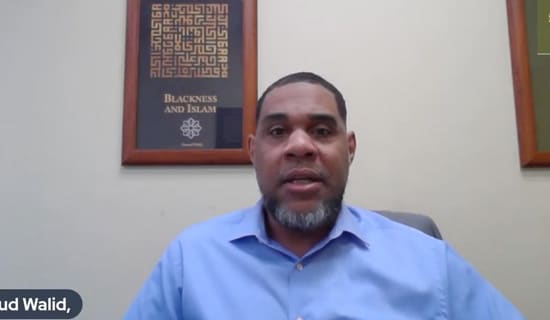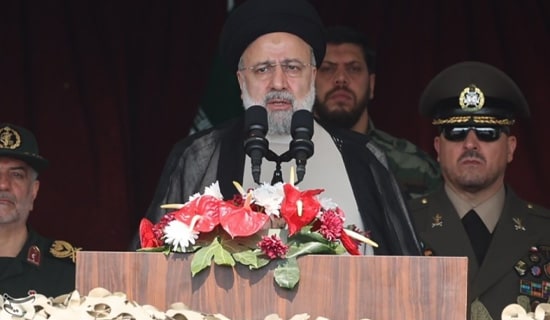The murder of Italian national Giulio Regeni, a doctoral student at Cambridge University who was conducting field work in Egypt, has mushroomed into a major crisis between Egypt and the European Union. Regeni disappeared under mysterious circumstances on January 25, 2016; on February 3, his body - which showed signs of torture - was found dumped on the Cairo-Alexandria desert road. Egyptian authorities have said that they are keen to solve the case, and President Sisi himself, in his first public statement on the matter, told an Italian daily that Egypt would find and punish the killers.[1]

Giulio Regeni (image: Ahram.org.eg, March 12, 2016)
In Europe, however, it is widely suspected that Regeni was tortured and killed by Egyptian security services, presumably in connection to his research on Egyptian labor unions, which had brought him into contact with political activists. On March 10, 2016, the European Parliament issued a statement condemning the torture and murder of Regeni, calling on Egypt to cooperate in the investigation, and urging the suspension of foreign aid to Egypt.[2] This statement drew an angry editorial in the official Al-Ahram daily calling it "a brutal assault on Egyptian policy," protesting that Egypt is not a European colony, and warning that foreign elements are adopting a terrorist policy of seeking to destroy Egypt under the guise of human rights.[3]
While most of the mainstream Egyptian press has shown similar defensiveness on the issue, more columnists are now beginning to question the official narrative. This is especially true in the aftermath of the Egyptian Interior Ministry's March 25 statement that it had solved the case. According to the ministry, the murderers were criminals from Qalyubia Governorate who specialize in armed robbery of foreigners while impersonating police. The ministry added that all the gang members had been killed in exchanges of fire with security forces in Cairo.
This statement has met with widespread disbelief, and even mockery, both in Egypt and abroad. One sign of the growing unease in Egypt over the official narrative is a March 27 column by Osama Ghazali Harb in the official Al-Ahram daily. Harb, a well-known liberal public figure, was until recently chairman of the Board of Trustees of the Free Egyptians Party,[4] the largest party in the current parliament. He wrote that at first he had believed that the ministry was innocent of wrongdoing in Regeni's death, but that he now suspects that it was indeed involved. He went on to call on the interior minister to resign at once "in order to save the reputation of Egypt and of its political regime."
Following are translated excerpts of the article:
"I Am Calling On Major General Magdi 'Abd Al-Ghaffar, Minister Of The Interior, To Tender His Resignation"
"Yes, I am calling on Maj.-Gen. Magdi 'Abd Al-Ghaffar, minister of the interior, to tender his resignation because of the ministry's abject failure in dealing with the matter of the killing of the young Italian, Giulio Regeni. This has caused far-reaching damage to the reputation and image of the political regime in Egypt and to the Egyptian security apparatus, and has had disastrous consequences for Egyptian tourism and the Egyptian economy.
SUPPORT OUR WORK

"From the first day, when Regeni's body was discovered, on February 5... I believed that it was impossible that the Egyptian Interior Ministry would be involved in a crime of this sort against a foreign student. The simplest thing for it to do would be to expel him from the country, so why would it be involved in such a disastrous action? Unfortunately, however, troubling indications have begun to surface.
"The first was an early statement by one of the ministry chiefs, before any investigations were completed, to the effect that the cause [of death] was a traffic accident. This led The New York Times to respond immediately that [the statement] caused it to suspect that the ministry might be involved in the incident, though it did note that torture of foreigners was uncommon in Egypt.
"Then afterwards came the scandal of the false witness, known as the engineer Muhammad Fawzi, who claimed that he saw Regeni quarreling with an Italian national on the day of his disappearance. It appeared as though [this witness] was in the service of the Interior Ministry, and it has been said that he left in one of its cars."
"The Interior Ministry's Statement Reads As Though It Says: 'It Is We Who Tortured And Killed Regeni, And Dumped His Body In The Desert'"
"The crowning touch, as they say, was the disgraceful statement issued the day before last, by Director of General Security Maj.-Gen. Sayyid Gad Al-Haq. The statement said that the crime was committed by a gang from Qalyubia Governorate, that dressed up as police and conducted armed robberies against foreigners, and that Regeni's personal effects had all been found at the residence of the wife of one of the gang members. Upon examination, the Interior Ministry's statement reads as though it says: 'It is we who tortured and killed Regeni, and dumped his body in the desert'!
"The statement, which gives the impression that the story was concocted to cover up a crime, has raised dozens of questions, perhaps the simplest of which is: Why did you kill all the members of this gang? Would it not have been more advantageous - as in any civilized country - to capture them alive, so that the entire world could hear their confessions?
"The Italian and international reactions in rejection of the Interior Ministry's statement, and the many grievous harms that are befalling Egypt, mandate that the Minister of the Interior tender his resignation as soon as possible, in order to save the reputation of Egypt and of its political regime."[5]
Endnotes:




